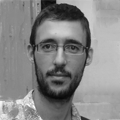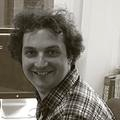 Zacros is the result of more than 15 person-years of development efforts by Michail Stamatakis and his group at UCL Chemical Engineering, in collaboration with the Research Software Development Group at the UCL Information Services Division, as well as UCL Business for the technology transfer activities. Our developers have backgrounds in Computational Physics and Chemistry, Chemical Engineering and Applied Mathematics, and have undergone extensive training on software development.
Zacros is the result of more than 15 person-years of development efforts by Michail Stamatakis and his group at UCL Chemical Engineering, in collaboration with the Research Software Development Group at the UCL Information Services Division, as well as UCL Business for the technology transfer activities. Our developers have backgrounds in Computational Physics and Chemistry, Chemical Engineering and Applied Mathematics, and have undergone extensive training on software development.
Project Lead
Michail Stamatakis joined University College London in August 2012 and is currently Associate Professor at the Department of Chemical Engineering. He obtained his PhD from Rice University (Houston, TX, USA) under the advising of Prof. Kyriacos Zygourakis, and performed post-doctoral research at the University of Delaware (Newark, DE, USA) in the group of Prof. Dionisios G. Vlachos. His research interests revolve around the development and application of stochastic multiscale methods for understanding complex systems, and solving practical engineering problems. Computational Catalysis and Materials Science are his main research fields, motivated by the timeliness thereof in tackling challenges related to the economic manufacturing of materials and the development of sustainable chemical processes.
Contributing Developers
Raz Lior Benson obtained his MSci in Natural Sciences from the University of Cambridge, specialising in Chemistry, followed by a PhD in Theoretical Chemistry from the same institution. His thesis explored the basic theory underpinning path integral–based simulations of vibrational spectra, with particular focus on the prediction of overtones and combination bands. He contributed to Zacros from October 2021 till June 2023 as a Research Fellow in the Chemical Engineering Department funded by the ReaxPro H2020 project and the Leverhulme Trust project "Boosting KMC", and his efforts focused on the development of methods and algorithms for efficient kinetic Monte Carlo simulation.
Srikanth Ravipati obtained his Ph.D. (2010-2015) in Chemical Engineering from the Indian Institute of Science, Bangalore, under the supervision of Prof. Sudeep N. Punnathanam. In 2015, Srikanth joined Imperial College London for his postdoctoral research, under the supervision of Profs Serafim Kalliadasis, Amparo Galindo, George Jackson, and Andrew Haslam, focusing on fluid-solid interfaces. From July 2019 until January 2021, Srikanth contributed to the development of Zacros as a Research Fellow in the Chemical Engineering Department, funded by the ReaxPro H2020 project. His work focused on the development and benchmarking of parallel algorithms for accelerating the KMC simulations of challenging systems. In February of 2021 Srikanth joined the Science and Technology Facilities Council (STFC) as Scientific Software Engineer.

Giannis Savva
Giannis Savva possesses a 5-year MSc equivalent degree in Applied Physics and Mathematics and an MSc degree in Computational Fluid Mechanics, both obtained from the National Technical University of Athens, Greece in 2016 and 2018 respectively. During the Summer of 2018 he completed an Erasmus+ internship in the lab, focusing on implementing fast queuing systems in kinetic Monte Carlo simulations of catalysts. He is currently pursuing his PhD in the lab, and his work aims at developing novel methods to accelerate kinetic Monte Carlo simulations of reactive systems.

Miguel Pineda
Miguel Pineda Rodriguez obtained a B.Sc. in Physics from the University of Los Andes (Merida, Venezuela), and a PhD in Physical Chemistry at Leibniz University Hannover (Hannover, Germany). After his PhD, he worked as researcher in world leading interdisciplinary research institutions in Spain, Belgium, and UK. From 2011 to 2013 he worked as a Lecturer in Physics at Simon Bolivar University in Venezuela. In November 2016 he joined Michail's group as a Post-Doctoral Research Associate. He has worked on Zacros in the context of projects sponsored by eCSE and the Leverhulme Trust.
Reearch Software Development Group
The UCL Research Software Development Group (RSDG) is part of the Research IT Services (RITS) Department within the UCL Information Services Division (ISD). The group collaborates with UCL researchers in the development and maintenance of scientific software, and offers advice, consultation and training on software engineering. Developers from the RSDG who have contributed to Zacros are listed below.

Roland Guichard

Ilektra Christidi
Ilektra Christidi is a particle physicist by calling, having worked on the ATLAS experiment of CERN’s LHC for 5 years. Prior to joining the RSDG, she was working in industry as a software engineer for the gas and oil sector, in geophysical exploration data processing. Roland Guichard obtained his PhD (2007) in Theoretical Quantum Physics in the field of ultrafast laser-matter interaction. He subsequently joined several European research groups in that area. In 2014, he worked at UCL on a project involving the computation of spin quits embedded in semiconductor environments and after a 2-years "detour" in the transport industry, he joined the RSDG in August 2017. Ilektra and Roland worked on Zacros in the context of projects sponsored by the eCSE and the Leverhulme Trust, aiming at implementing the Time-Warp algorithm in Zacros to enable distributed KMC simulations in massively parallel computing architectures.
James Hetherington, leader of the RSDG from 2012 to 2017 and Director of the UCL Centre for Advanced Research Computing since 2021, is a research software developer combining the skills and experience of a computational scientist with those of a professional software engineer. In his role within the RSDG, he worked with researchers to produce maintainable, usable, well-tested research software. Mayeul d'Avezac, previously a research software developer at the RSDG (until 2017), has a PhD in computational physics from Universite Paris VI. Prior to joining RITS in 2013, he worked as a staff scientist at the USA National Renewable Energy Laboratory in Colorado (2007-2012). Jens Hedegaard Nielsen (ex-member of the RSDG as well) holds a PhD in Physics from the University of Aarhus, where he carried out research in Optical and Molecular Physics, developing simulation and modelling software and multithreaded software for experimental data acquisition and analysis. Both worked on the development of parallel algorithms to improve the computational efficiency Zacros (projects partly sponsored by eCSE).
Commercialisation and Distribution
The distribution and licensing of Zacros is taken care of by UCL Business (UCLB), the commercialisation company of University College London and its partner NHS trusts.








